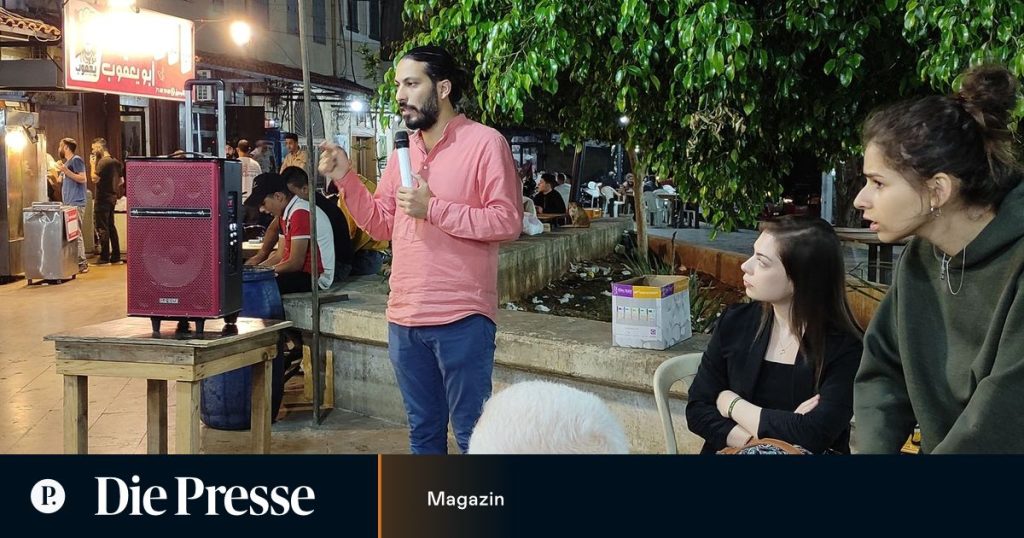A vote on Parliament will take place in Lebanon on Sunday. It is the first choice after the economic crisis, mass protests and the explosion in Beirut. The visions of the opposition parties are great, but their capabilities are limited.
It’s a typical Sunday evening in Tripoli, Lebanon’s second-largest city: plastic armchairs lie around tables in a tiled plaza, men smoke hookahs or playing cards, there is the smell of slightly burnt chicken from the nearby grill, and hose lights are wrapped around the trees. In this setup, a 20-year-old student places a portable speaker box on a table and hands the microphone connected to her partymate. Obeida Al-Tikriti has a request: he wants to talk to the men in the café about politics.
The Lebanese will elect a new parliament on Sunday. This is the first election after mass protests in 2019, the economic crisis, and the explosion in Beirut in 2020. In Lebanon, power is divided between sects, and parties have been firmly in power for decades. But this is also the root of mismanagement that has culminated in national bankruptcy. Many, especially young people, are tired of it. Also Tikrit. This is why he is running for election this year.

“Food practitioner. Bacon guru. Infuriatingly humble zombie enthusiast. Total student.”








More Stories
Kyiv: Russian Kursk offensive halted
US Presidential Election: Former US Government Officials Warn Against Donald Trump's Election
Netherlands wants to leave asylum system